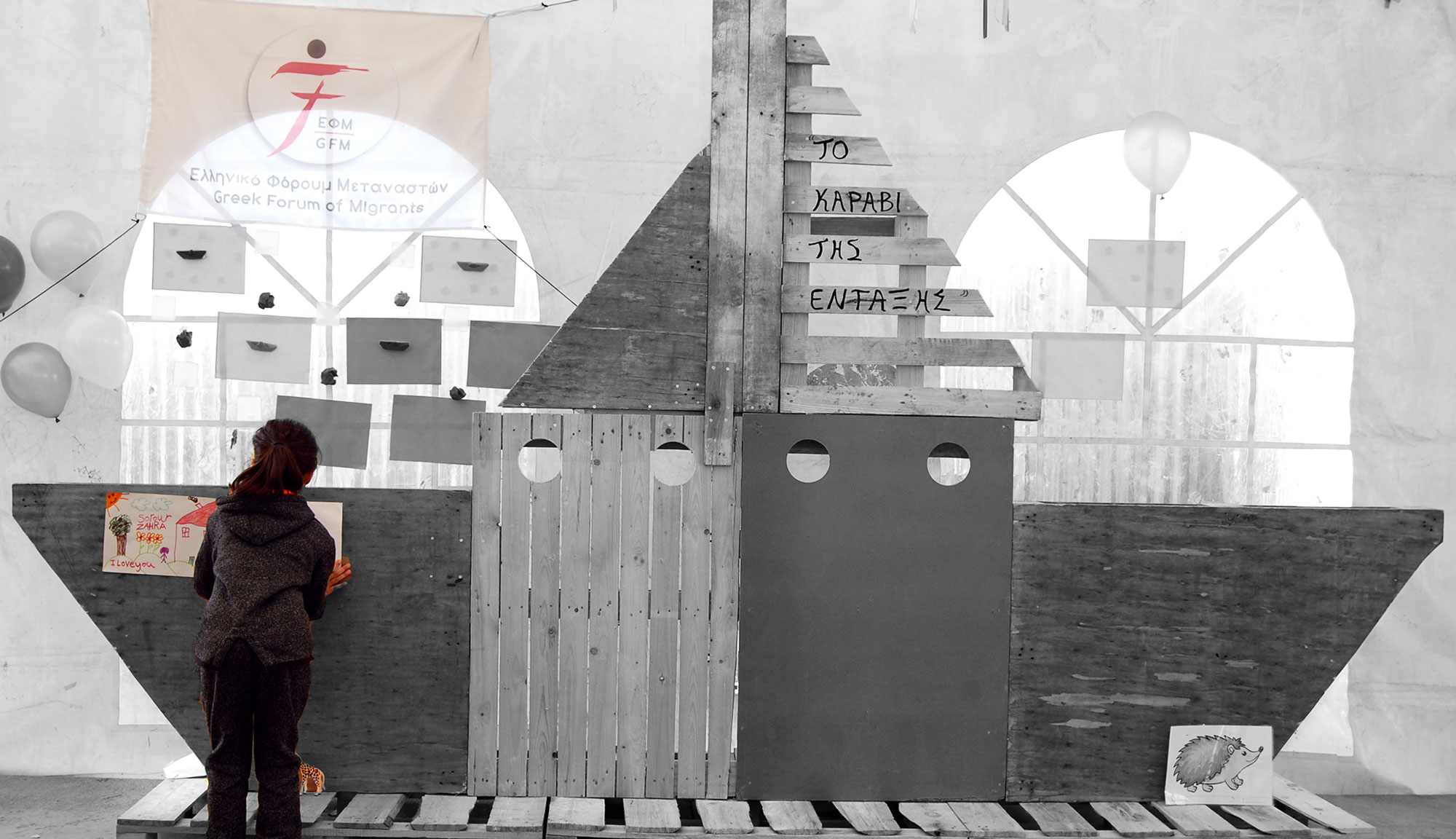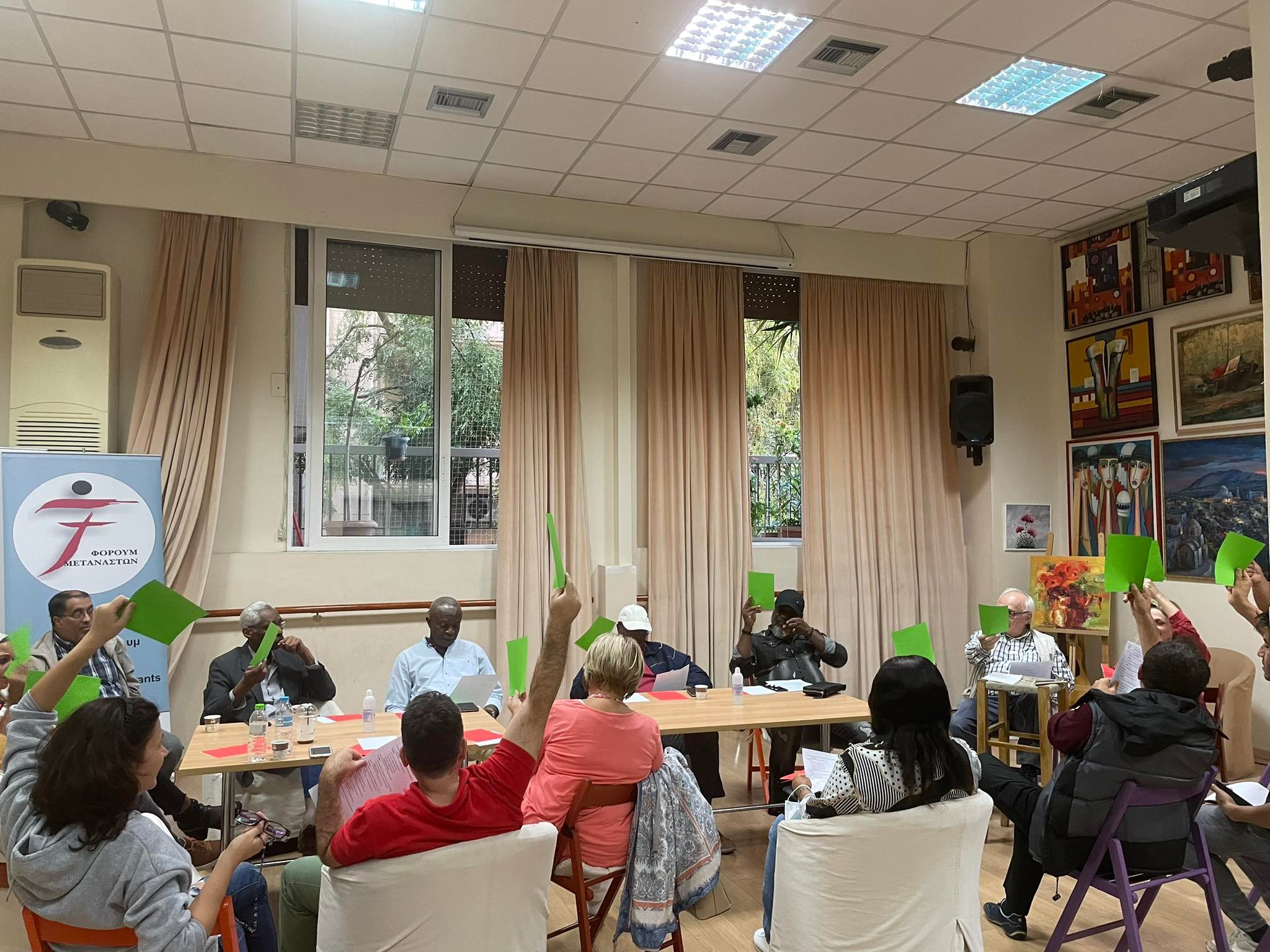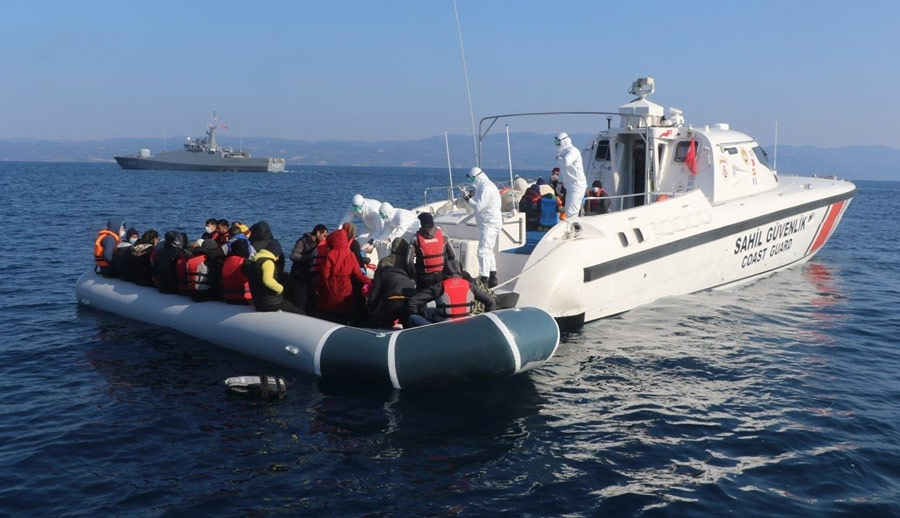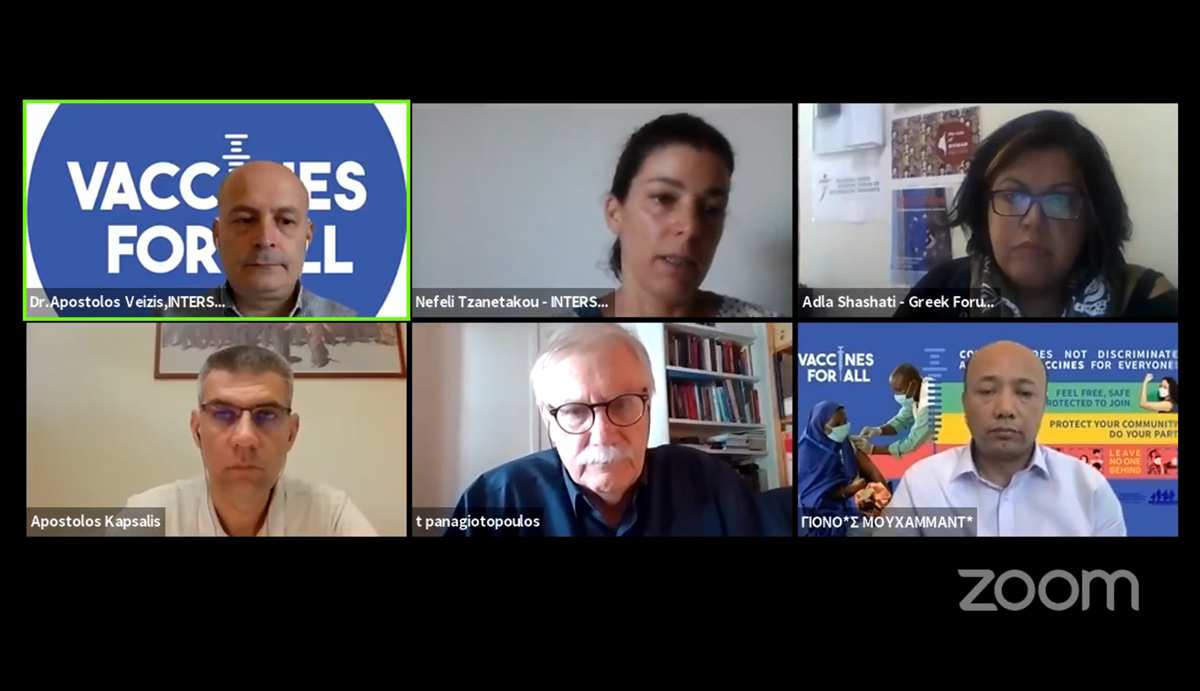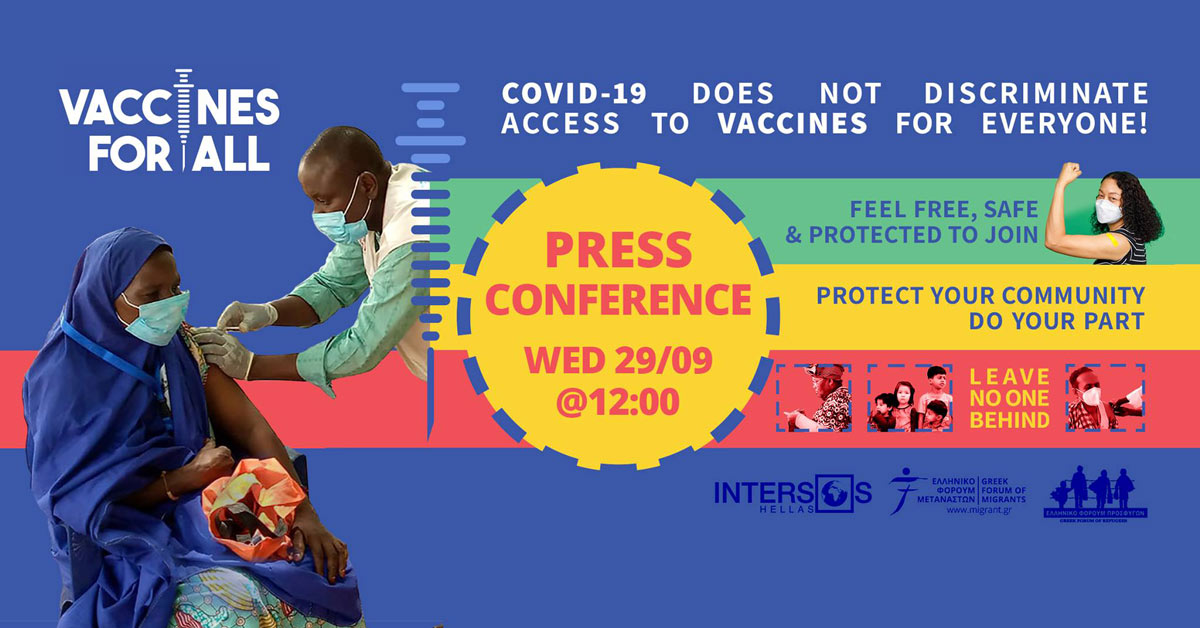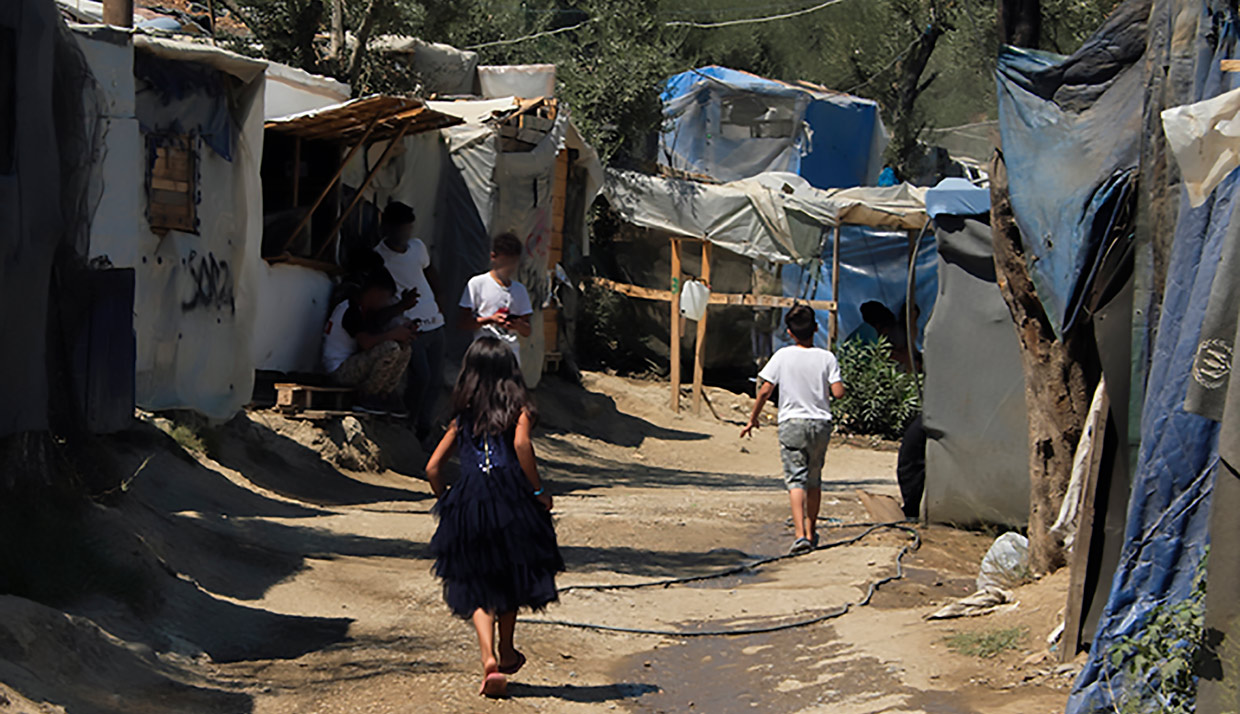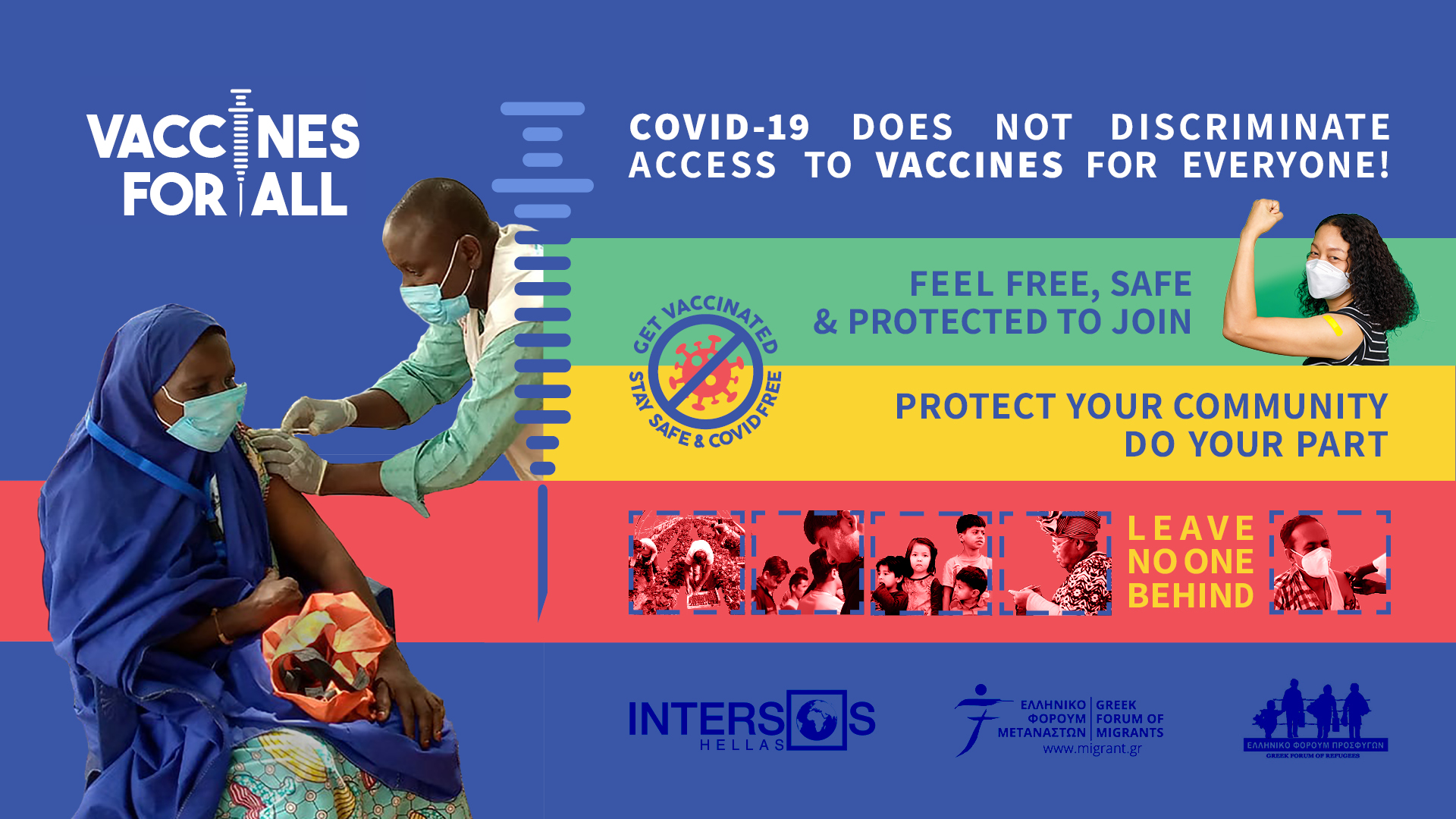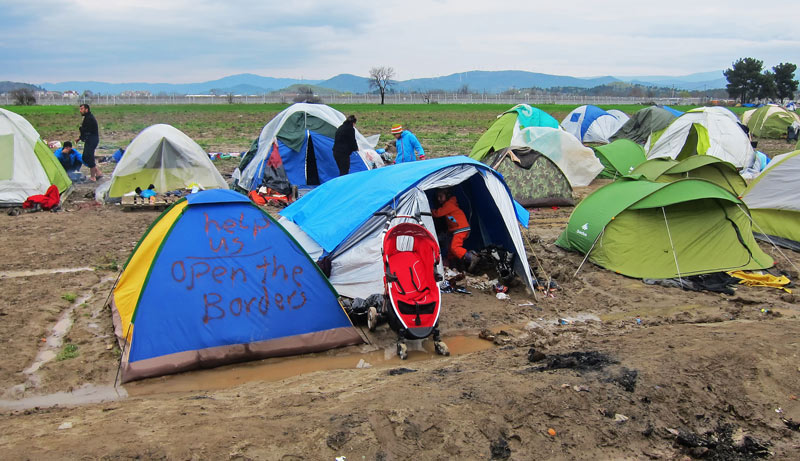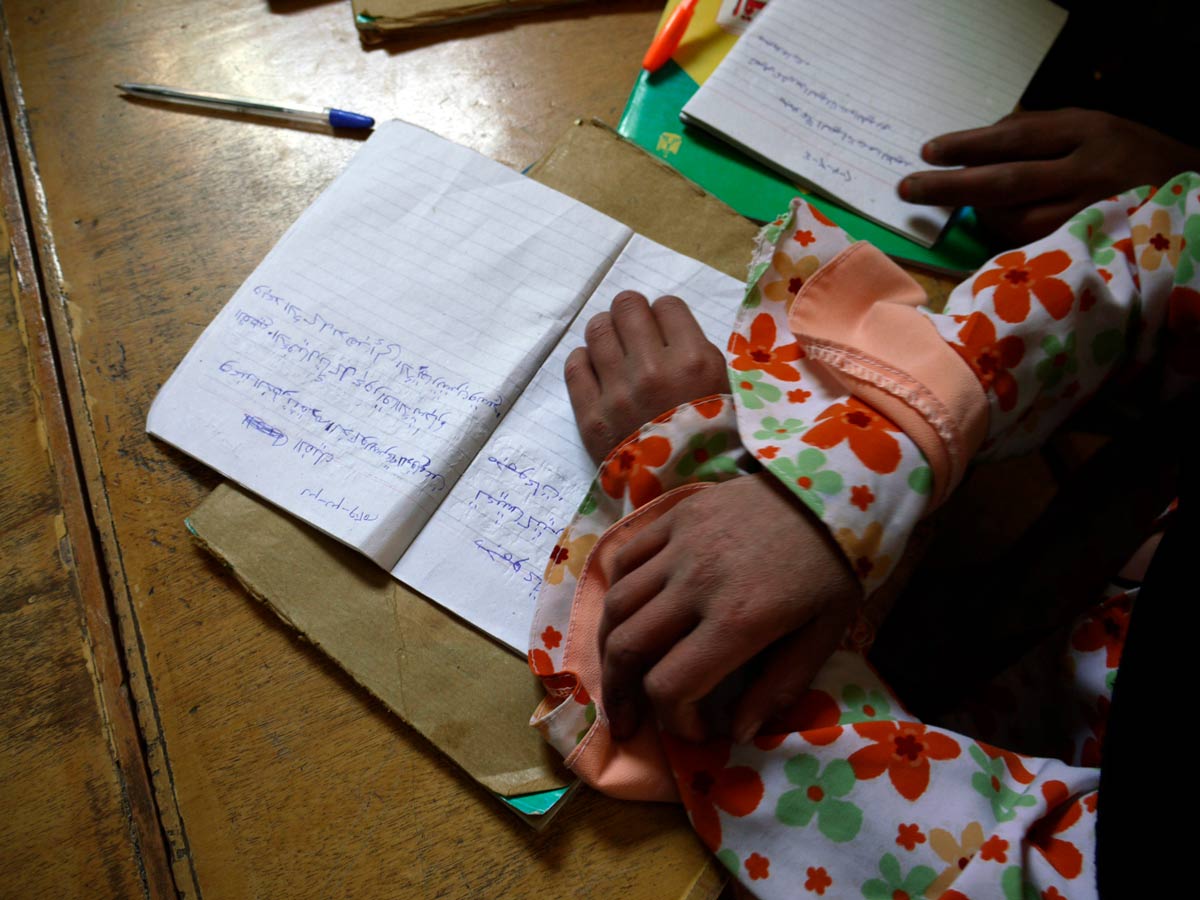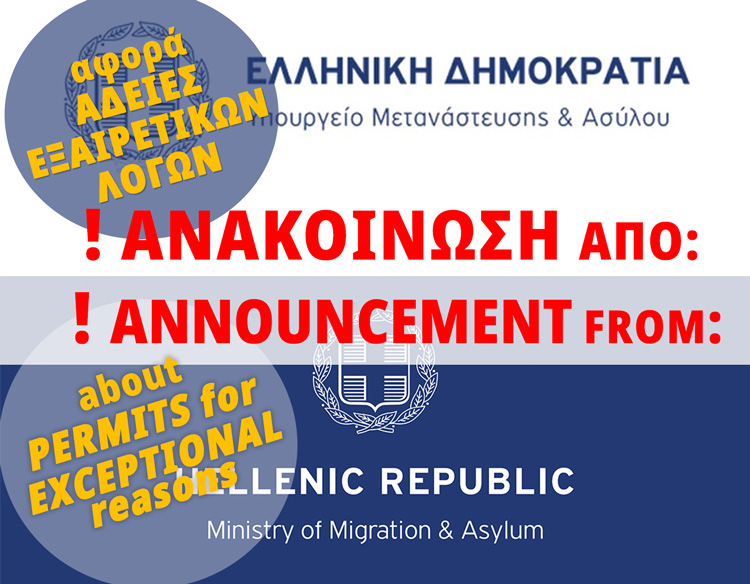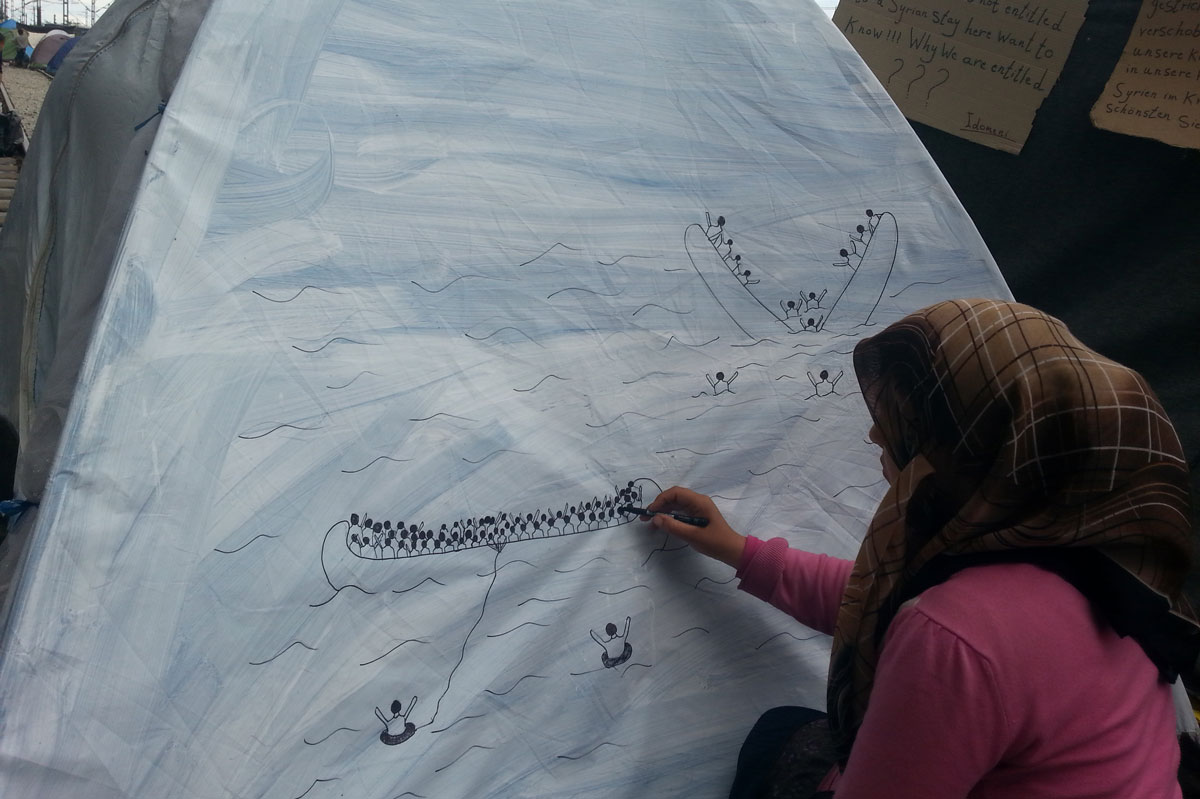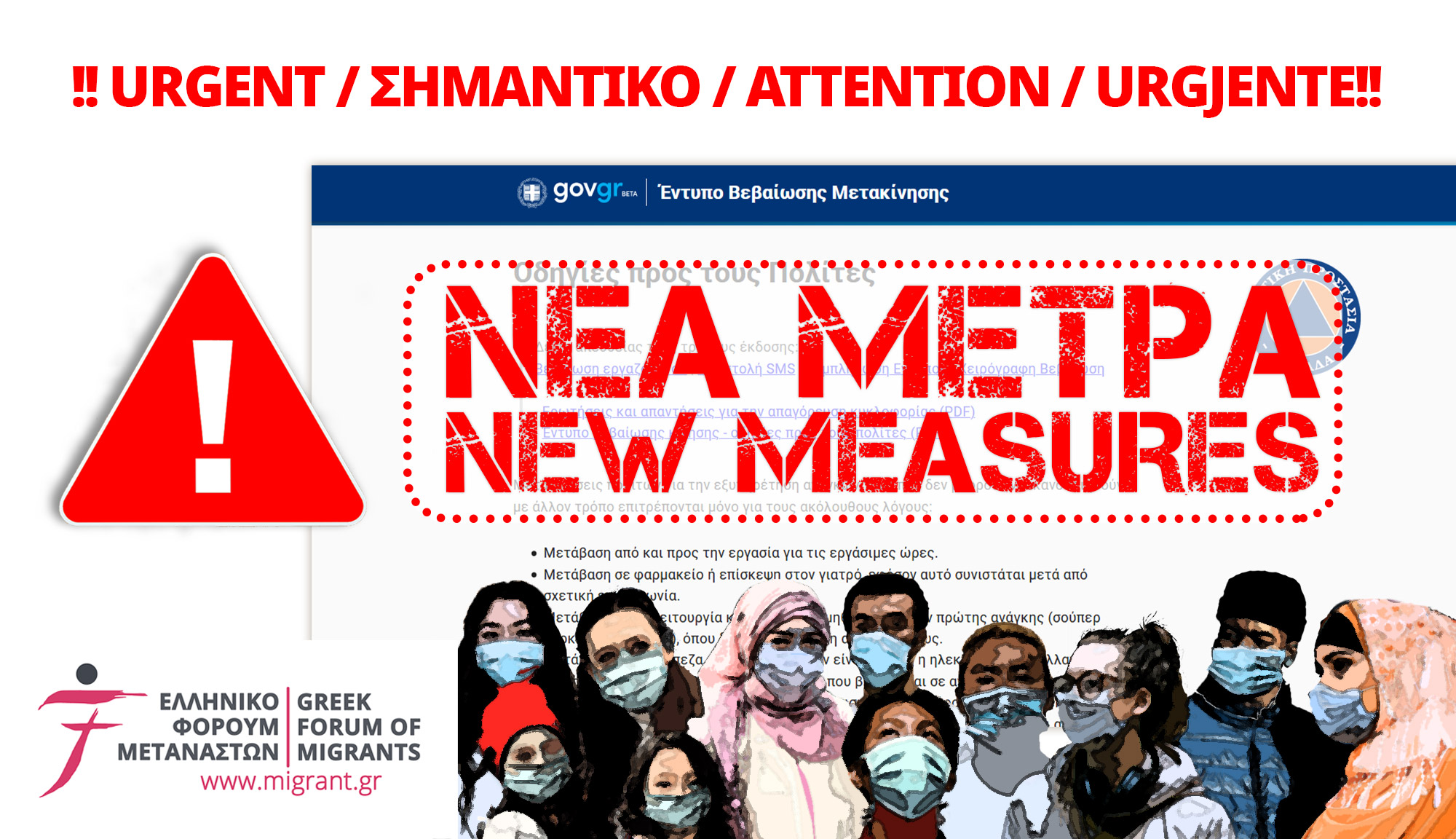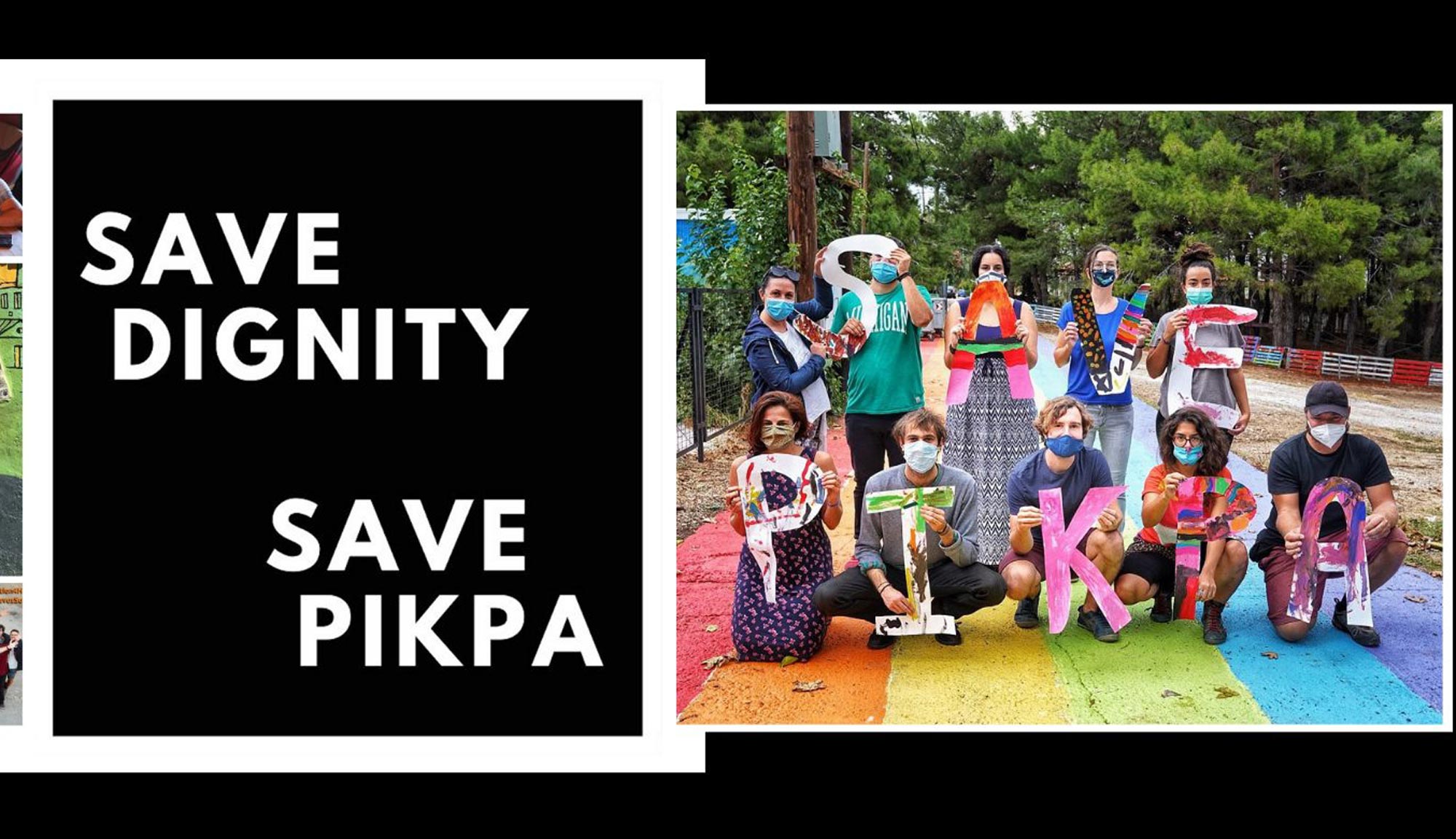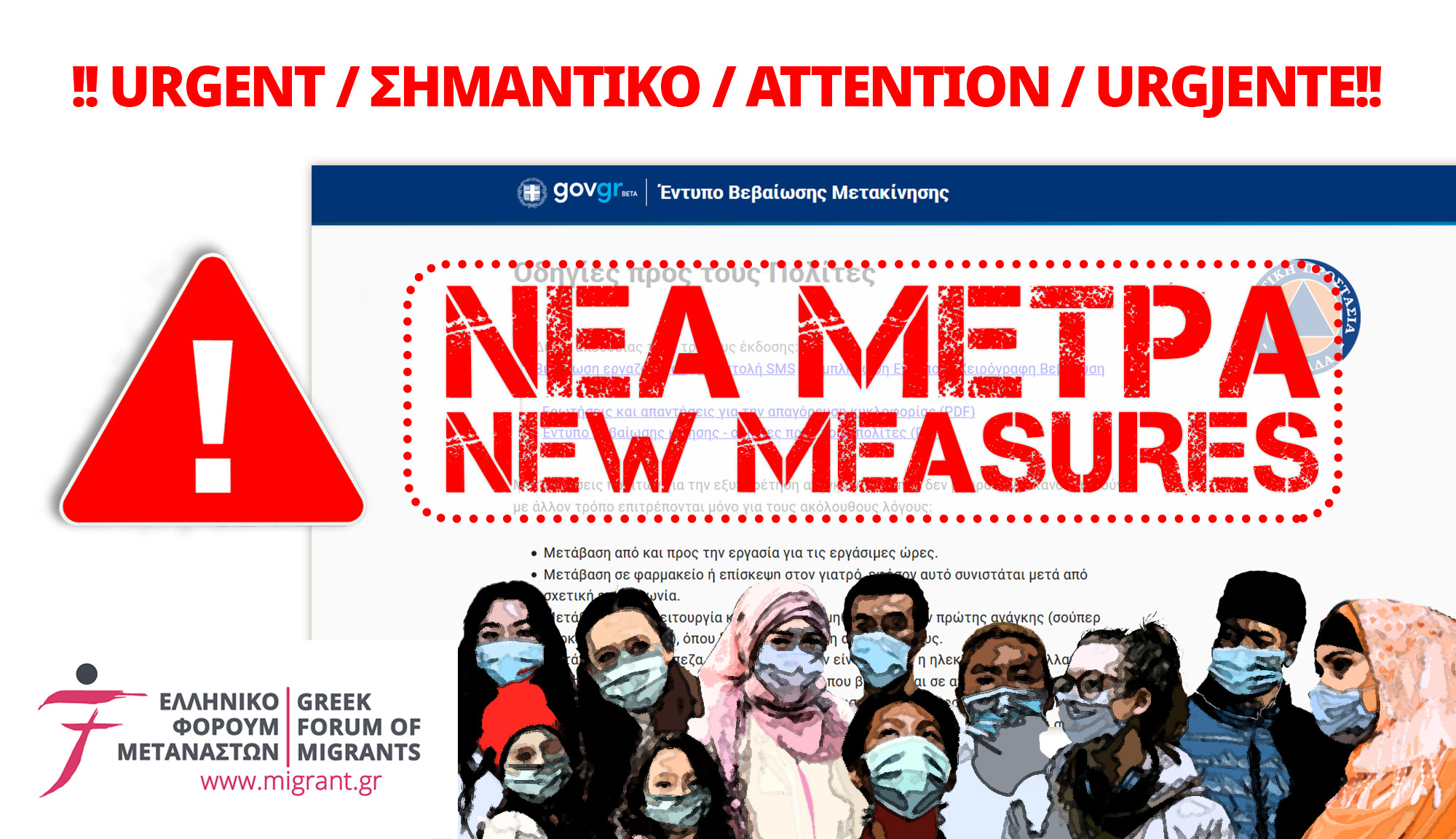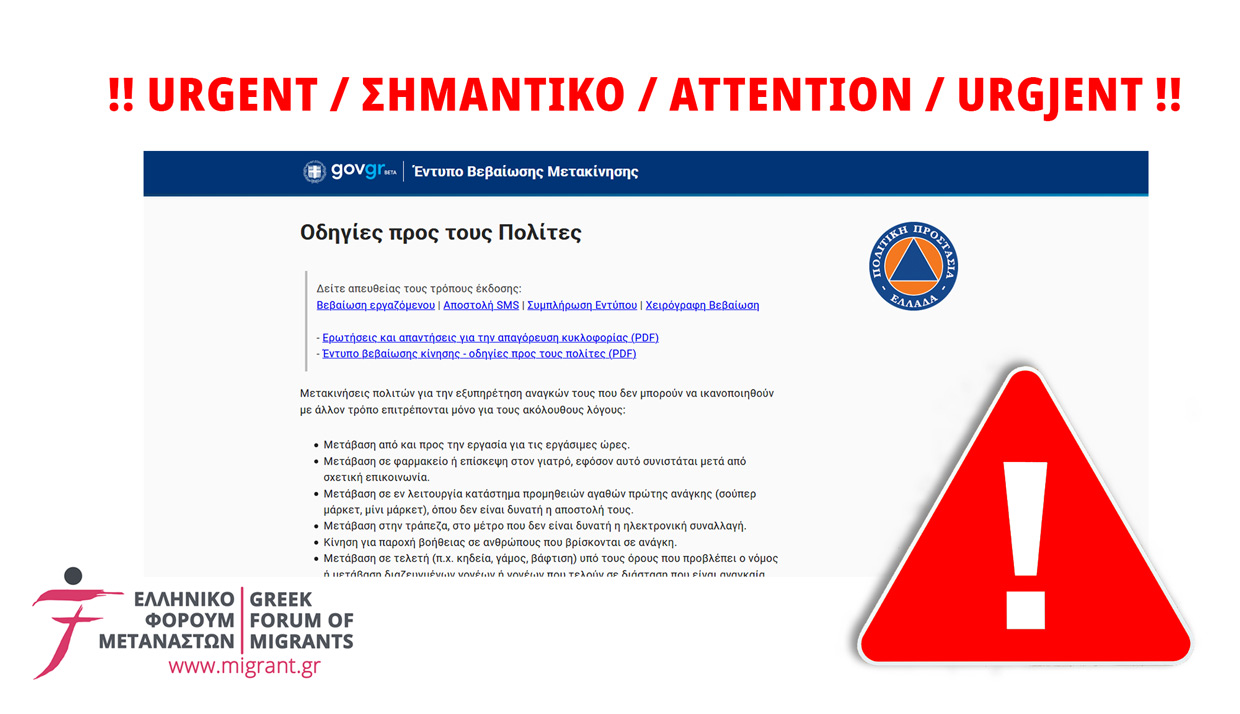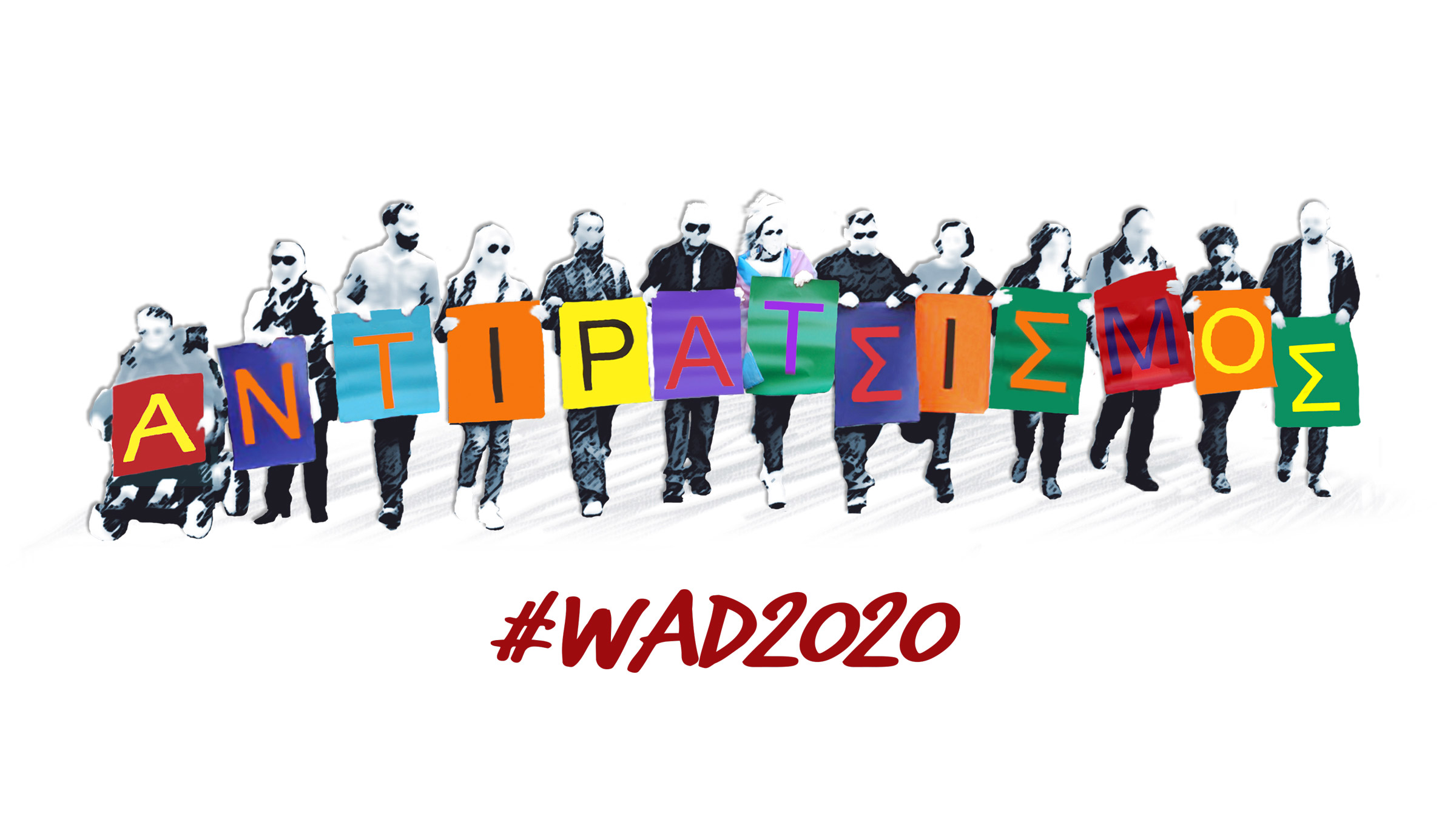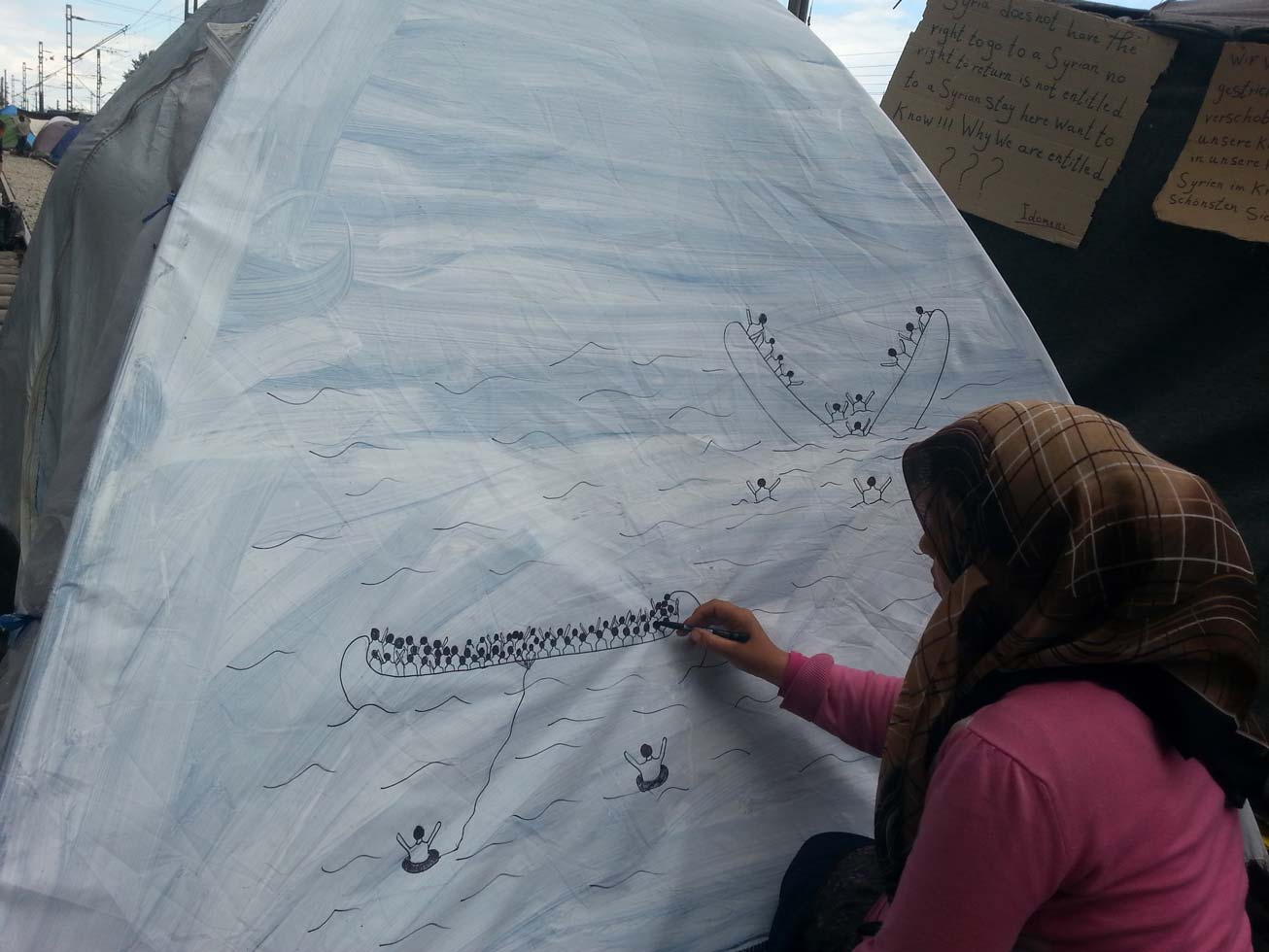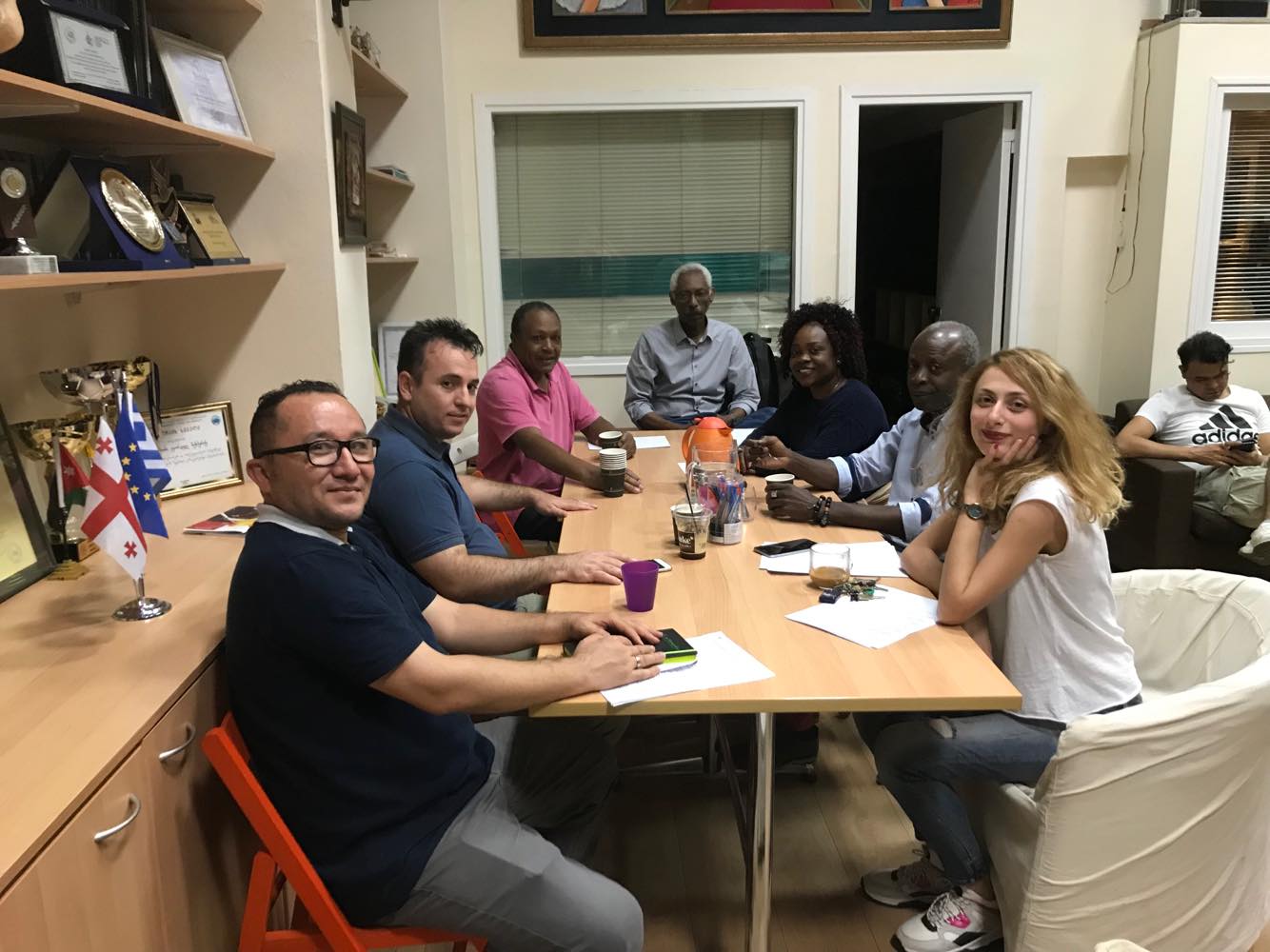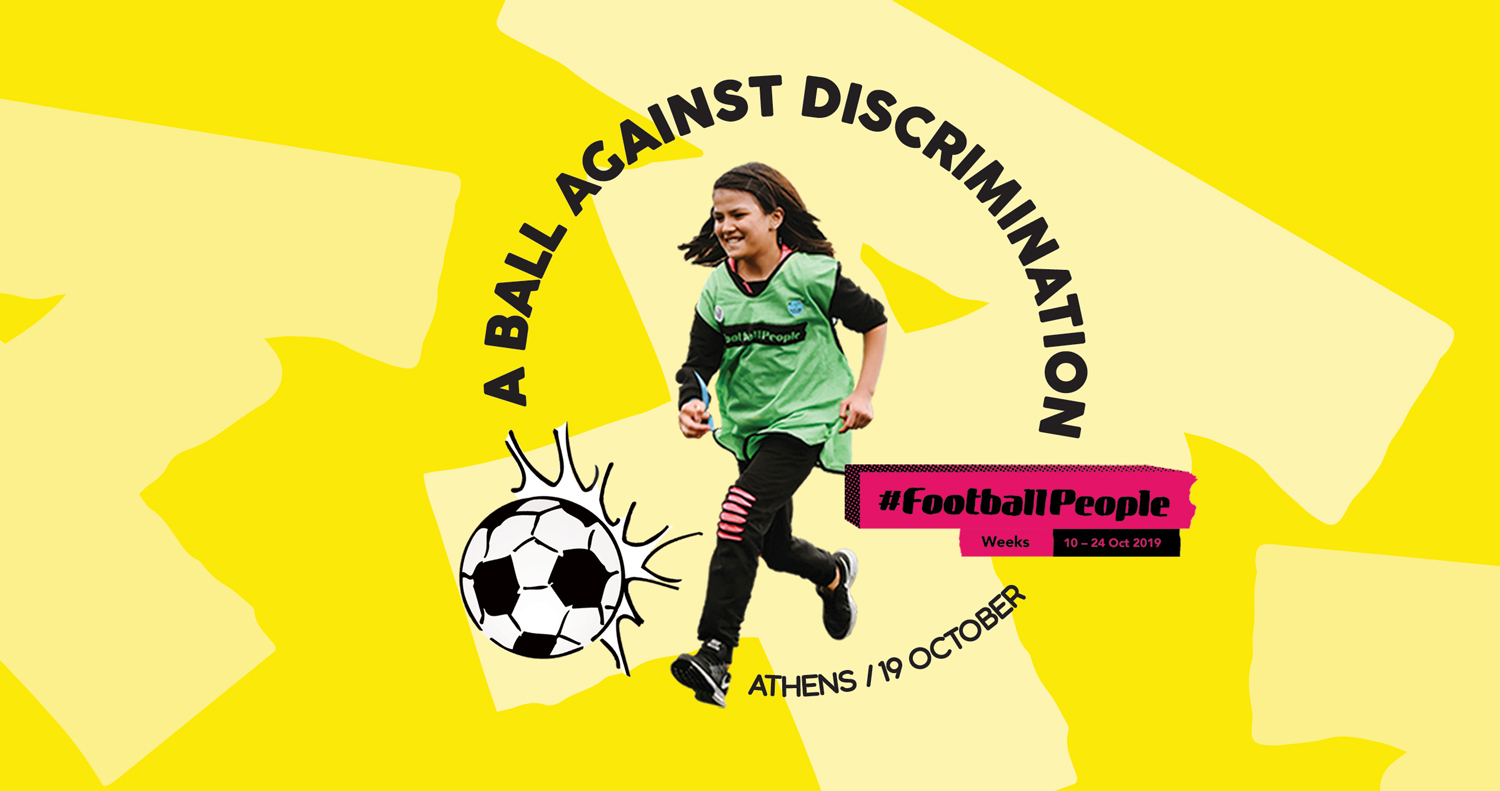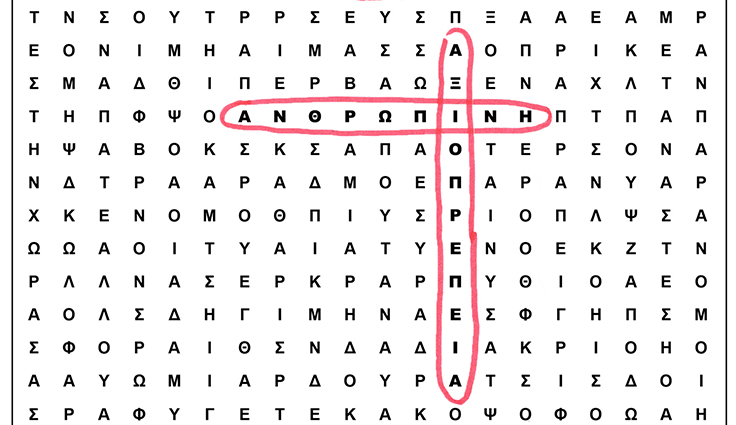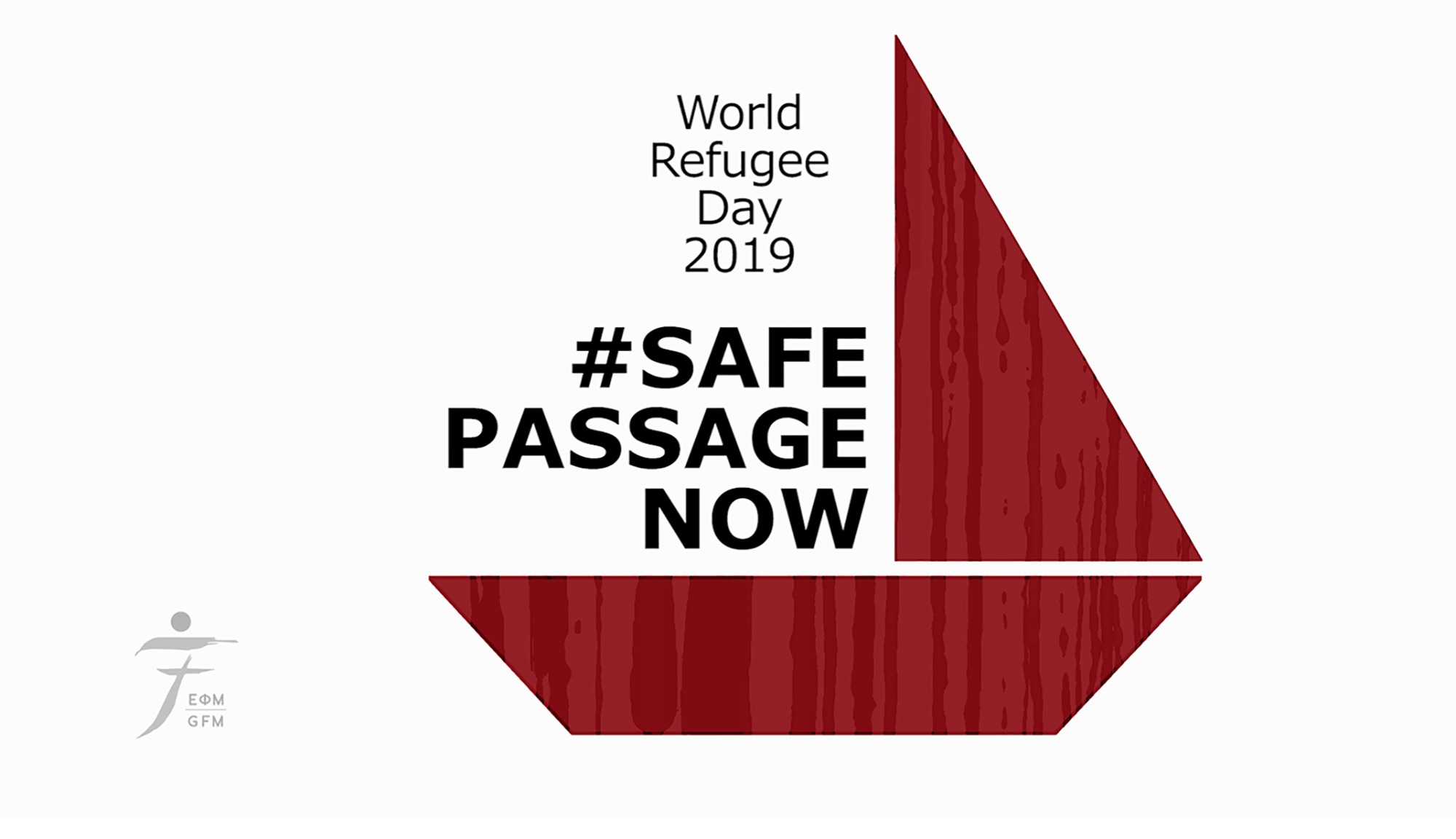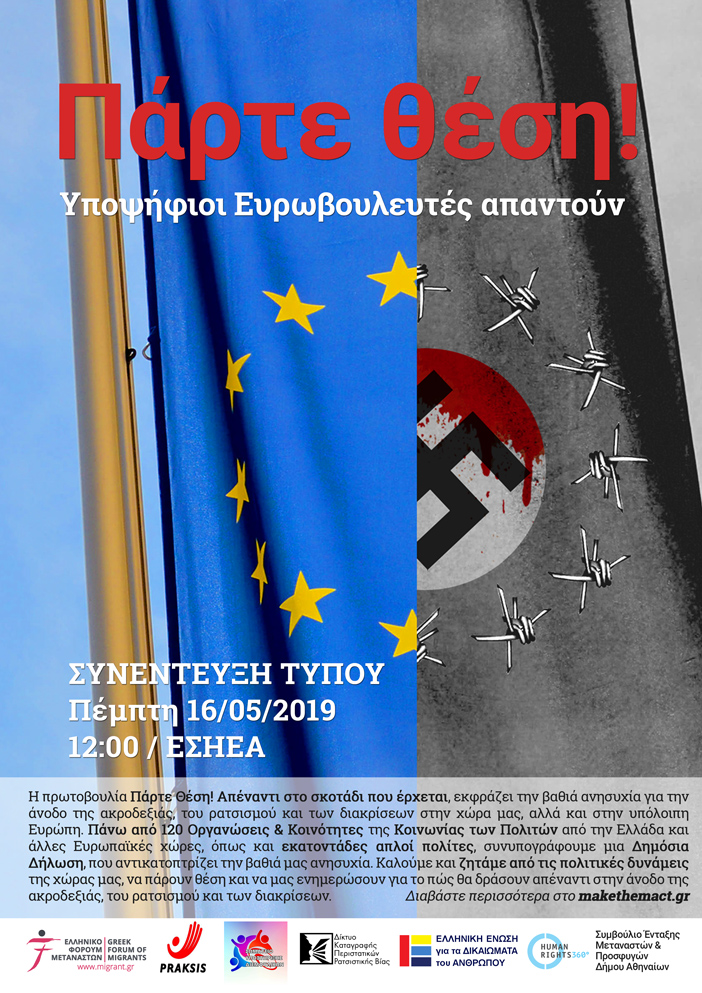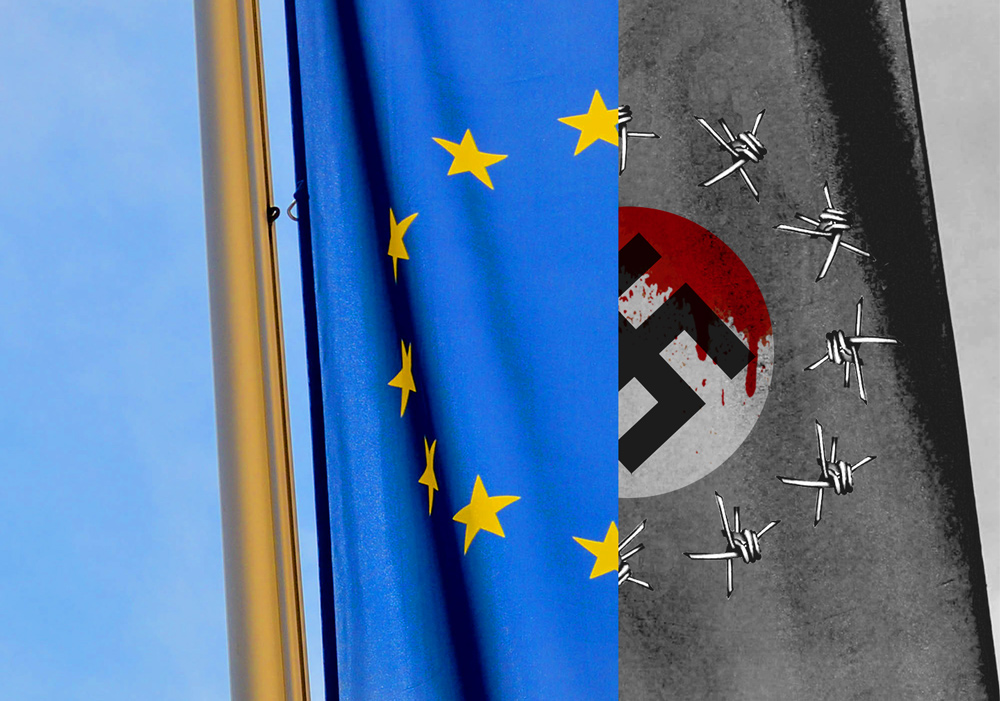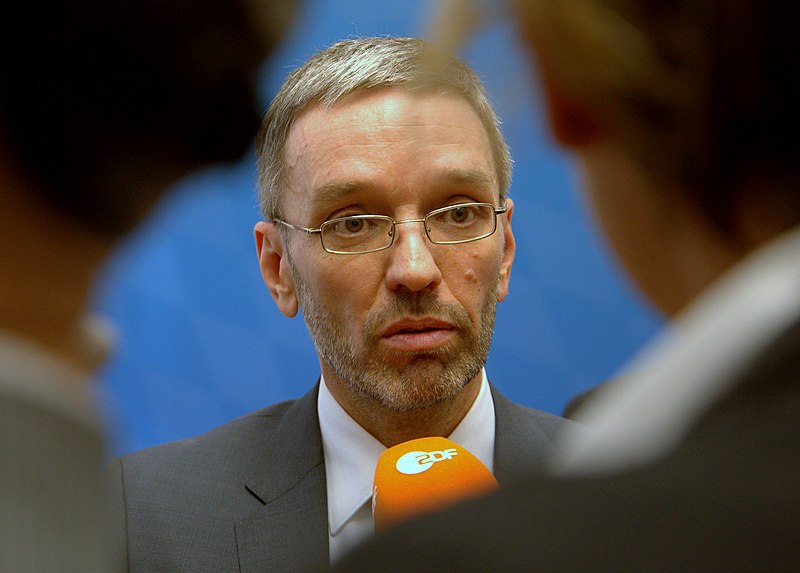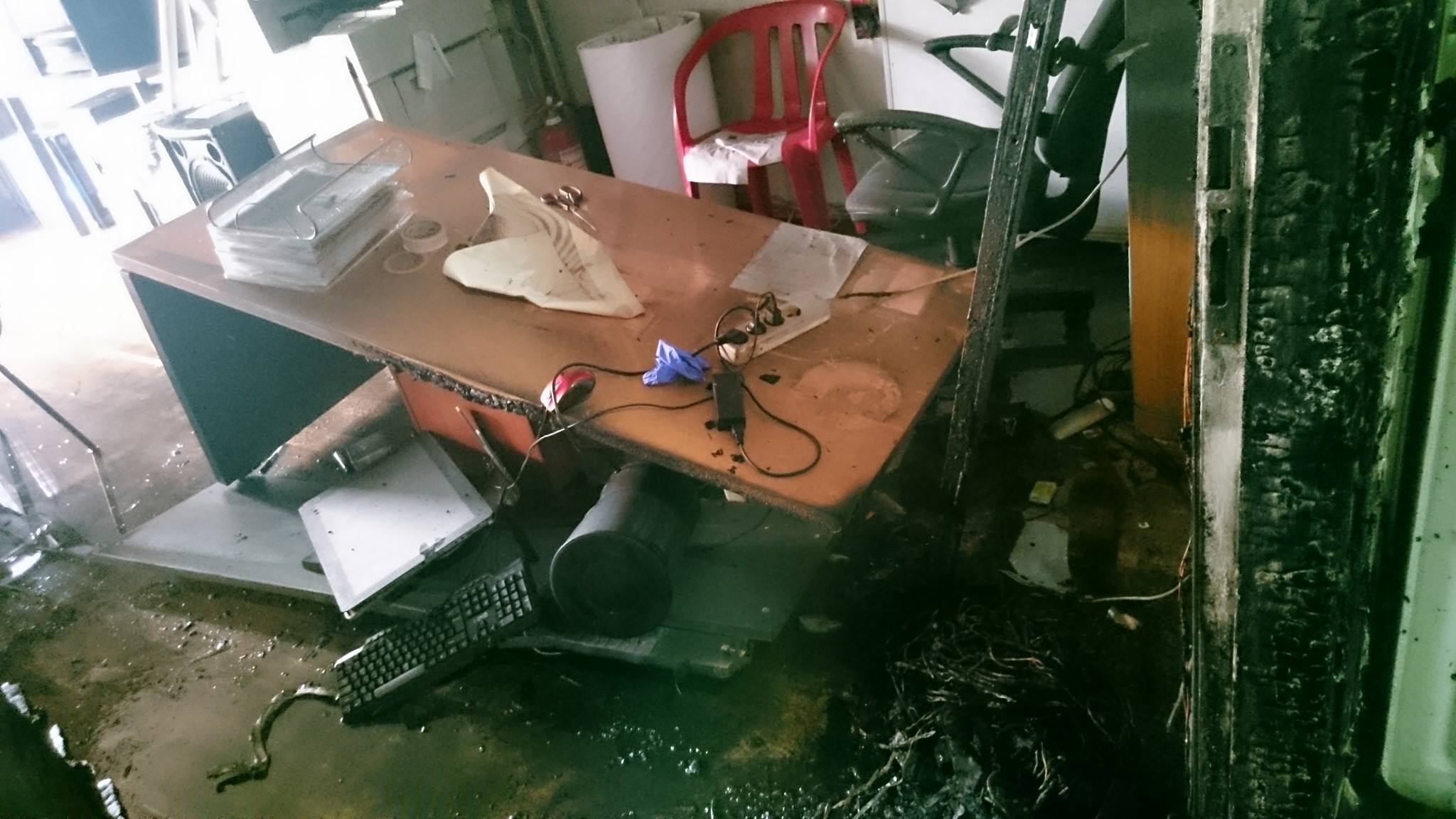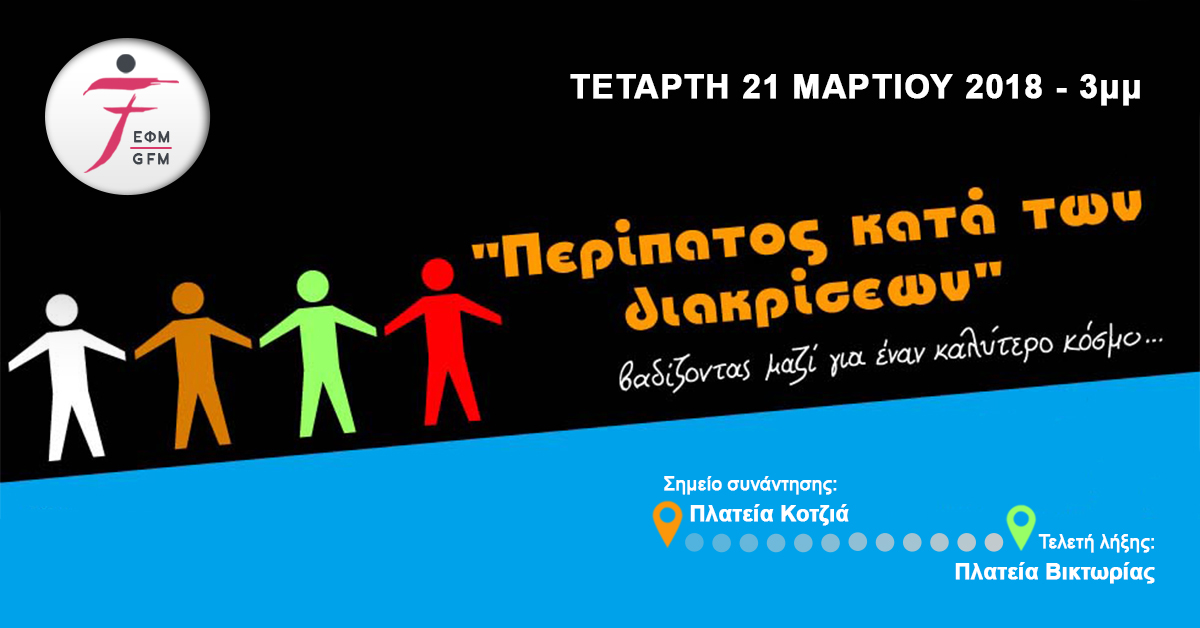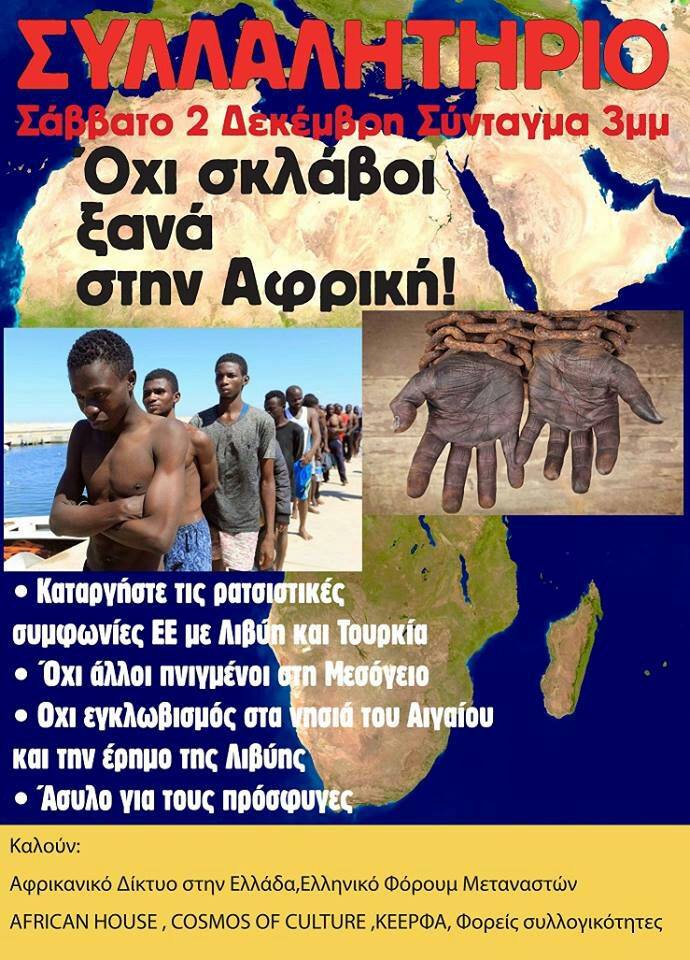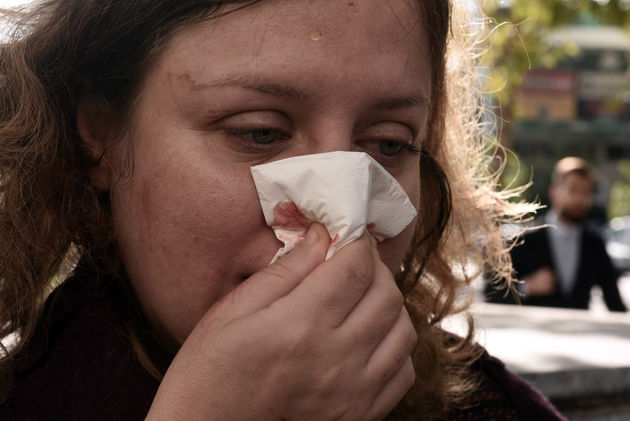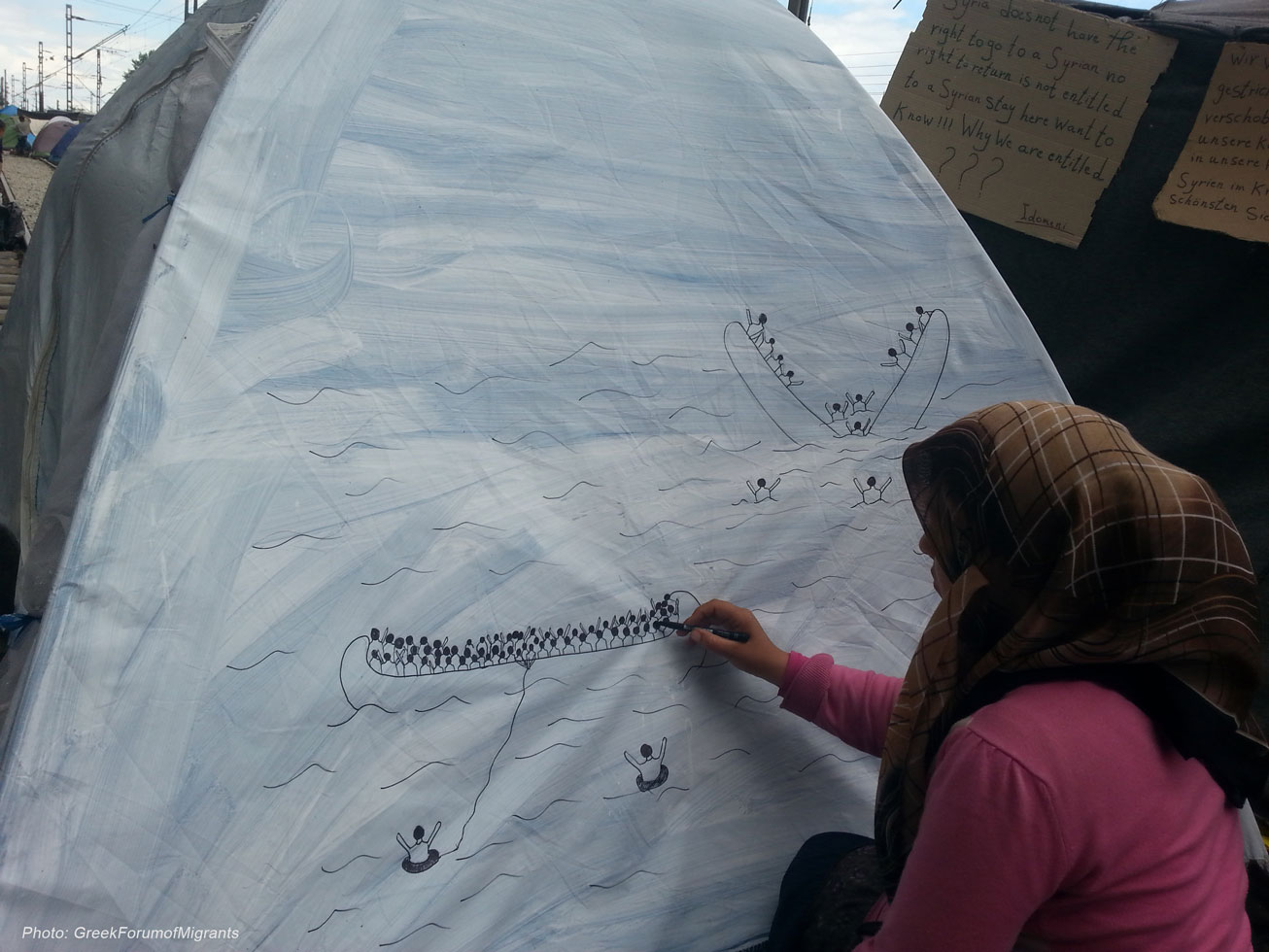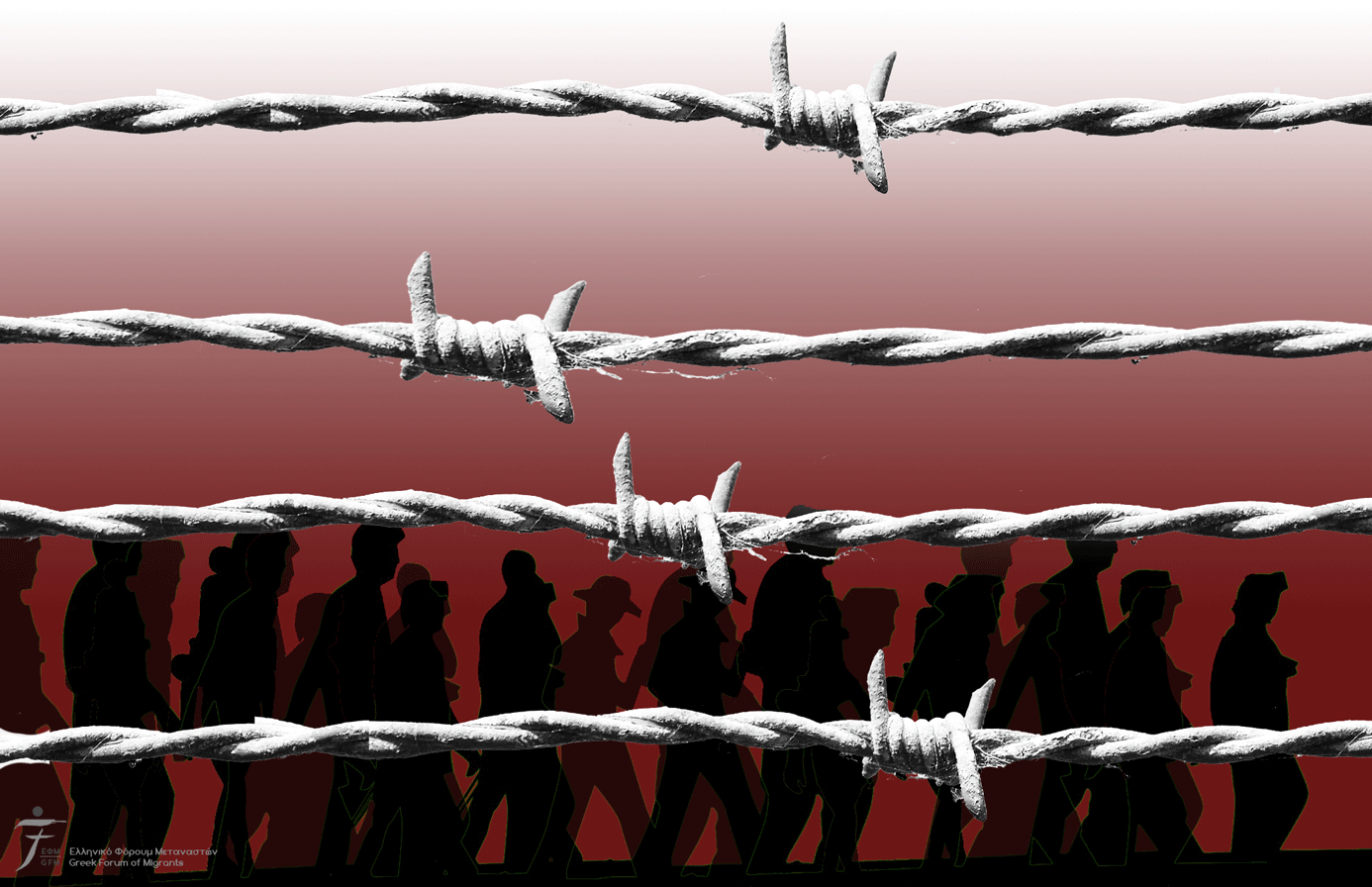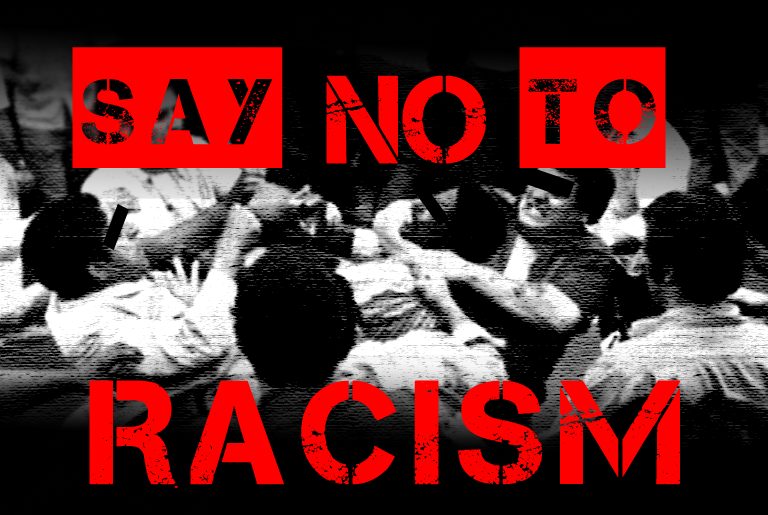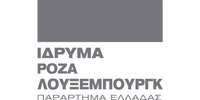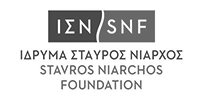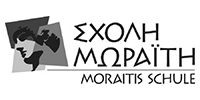Announcement for the International Migrant Day 2019
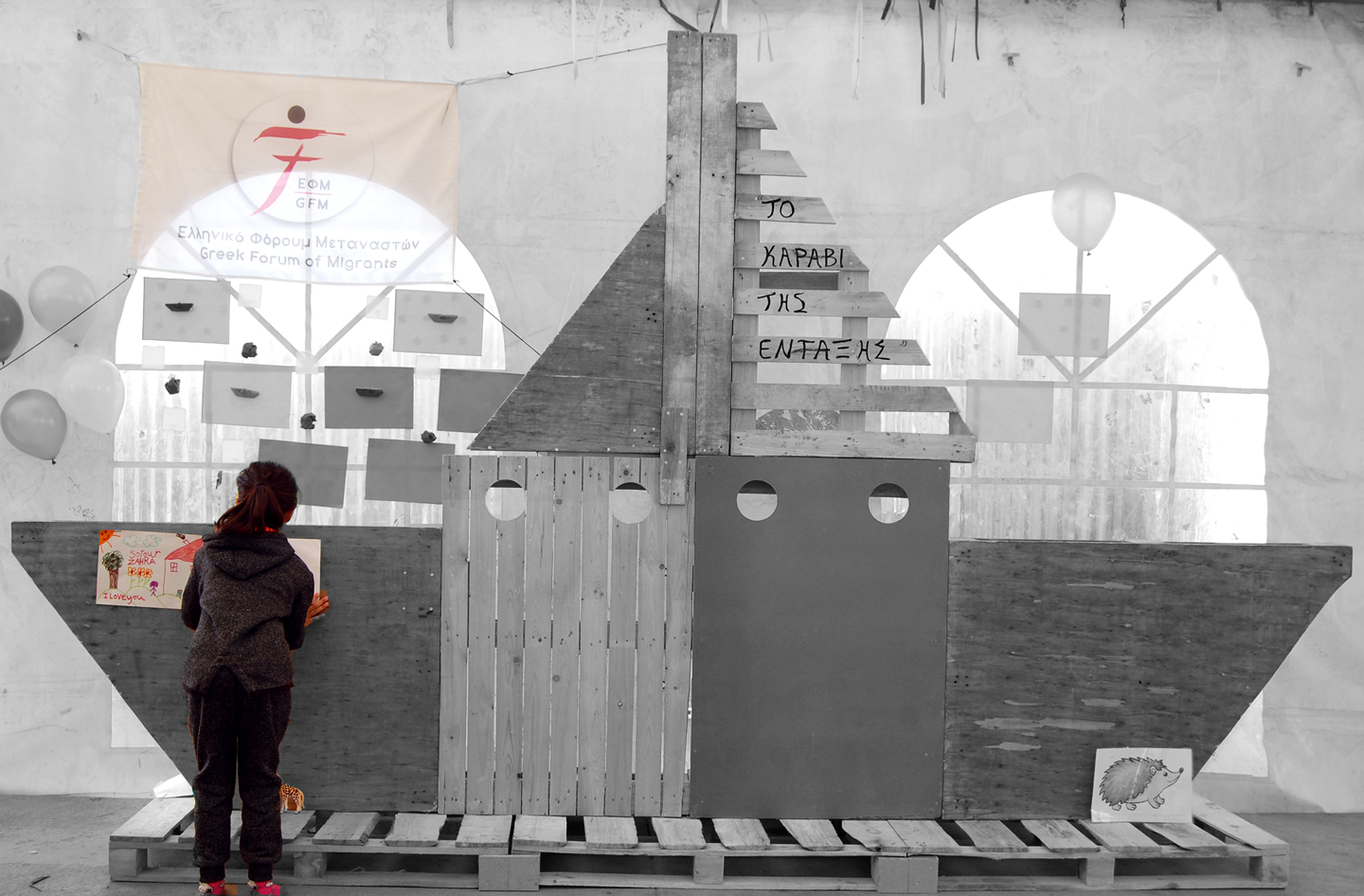
Read below the announcement of the Greek Forum of Migrants on international Migrants Day, December 18th, 2019:
International Migrants’ Day 2019
Migration: A problem of management or lack of an integration plan?
The Greek Forum of Migrants, on the occasion of the International Migrants’ Day, stresses once again the urgent need for a genuine migration policy for refugees and migrants in Greece.
Because of the refugee crisis, everyone`s attention has been focused on our fellow humans who have been trapped in Greece for the last four years, trying to reach an idealized Europe. The approximately 100,000 refugees that are currently living in our country appear to be unwanted by Europe, by most political parties, but also by the governments`. Refugees live in isolation until they are relocated or they return home. We hear about detention centers, relocation, we hear about voluntary returns and deportations, but we haven’t heard in a long time anything about social inclusion and human rights.
The government must deal with the real problem, which is the lack of effective migration policies and the complete absence of a policy from the European side. Although the situation of refugees seems to be more well-known in the country, there is a lack of awareness of the issues of migrants.
The situation for migrants in Greece today, is summarized in the following eight points:
- 50% of the more than 550,000 immigrants who are officially registered by the relevant departments of the Ministry of Interior have a legal residence permit (ten years), a permit that has now been repealed and necessarily obliges migrants to either go to a simple residence permit (3 years) or on a long-term residence permit (5 years), so that they can obtain continuous “legal” residence in the country.
- Why do they need continuous "legal" residence? Because according to the most strict laws in Europe for the naturalisation of foreign nationals, the right to both long-term residence permits (5 years) and the right to claim citizenship of their place of residence only apply to third-country nationals who hold a residence permit for 7 consecutive years.
- Of the 550,822 immigrants who hold a residence permit, coming from about 150 different countries of origin, as registered on 31/10/2019, the 5 most populous migrant communities are from: Albania 357,472, Georgia 22,869, Pakistan 19,009, Ukraine 18,328 and Russia 14,878. Numbers that prove that migration to Greece is mostly from the European continent.
- About 230,000 migrants have residence permits, which are renewable for more than 3 years (simple, ten year, family member, etc.). Only 28,248 of them have a long-term residence permit (5 years), the only one that is a more "secure" residence permit, which provides increased protection, employment in another EU Member State, and equal treatment with EU citizens
- 97.222 third-country nationals have residence permits in the country because of their kinship with Greek or European citizens.
- 24,882 hold a residence permit for exceptional reasons. Some of them have been forced to apply for such a permit, for reasons such as lack of a sufficient number of stamps or failure to obtain the required supporting documents in time, etc., which "takes them back to zero" concerning their continued residence in the country.
- Interesting is the age distribution of the migrant population, as we observe that about 99,400 are minors. Many of them have the right to obtain a second generation residence permit when they reach adulthood. They also have the right to apply for Greek citizenship.
- One issue which, unfortunately, has not been of any particular concern to the Greek State and the media, is the ageing of the migrant population. According to Ministry data, about 150,000 people with residence permits are over 50 years of age. Many of them are parents of second-generation children, with residence permits that are difficult to renew or do not provide them with a pension, etc. In addition, due to the lack of transnational agreements with some countries, it is not even possible to issue a pension to people who have left the country and are entitled to receive it.
There are two issues that we consider as the Greek Forum of Migrants, need to be discussed today:
Second Generation - Citizenship
Almost on all issues concerning the Second Generation, we still find problems. Here too, there is a lack of strategy and planning for social inclusion and integration of children coming to the country at a very young age. Apart from these shortcomings, however, there are particular absurdities. For example, a teacher`s recent complaint that while visiting a Museum with students, she was asked to inform about the countries of origin of the children, because according to recent ministerial decisions, students attending the Public School are separated from the Greek State to children who enter for free and children who pay a reduced ticket, depending on their country of origin!
In the past, children who could not qualify under Law 3838/10 had as their chance to protection the opportunity to belong to the category of "humanitarian reasons" after they had been born or studied for 6 years in Greek education (Law 3907/11).
In 2014, a new type of residence permit was created for children who were born or came to Greece at an early age and who wanted to obtain Greek citizenship, the second generation residence permit. Today, only 25,000 hold this license (to be precise, 24,674).
The Greek state, if it so wishes, can determine who belongs to the beneficiary categories of Law 4332/15. All information required for the assignment of Greek citizenship to beneficiaries is already available to the Greek state in accessible digital form. In a sense, the Greek state can know in advance, and precisely, who the beneficiaries are, and just wait for their own expression of interest to complete the process. We refuse to believe that the problem is just a matter of staff shortages. There is a lack of organization, and possibly even political will.
Although migration to Greece has begun since the 1960s, with mass migration taking place in the 1990s, it was only in 2009 that the new citizenship law began to be discussed. And despite the "obvious", the passage of Law 3838/10 has sparked political clashes in the country that led to the controversial Council of State decision that ruled the second-generation provisions unconstitutional in February 2013. Since then, despite the passing of the Law 4332 / 15, the debate remains open.
Enclosed in a Residence Permit
Time is the migrant`s worst enemy. Whenever a law on migration is passed, every time we deal with issues related to ministerial decisions and presidential decrees, some feel that the problems have been resolved. However, what they cannot understand is what it means for migrants to wait for the enjoyment of their rights. We have become accustomed to living `half` lives, and this is a problem that concerns not only us, but also the Greek society as a whole.
We do not accept the situation in which we live, but we have not met anything else. Fact that we do not expect, to change anytime soon. Delays in issuing residence permits are one part of the problem that is in the general context of all public services. The main problem lies in the fact that the majority of first-generation migrants are trapped in precarious residence permits, from which it seems that they cannot escape. It is no coincidence that only 4.5% of people who hold a legal residence permit hold a long-term residence permit (5 years).
People who have been in Greece for 30-40 years, continue to stay in the country with temporary residence permits, which require renewal every 3-5 years. Theoretically, although these people do have the right to apply for a long-term residence permit, practically they cannot even apply for this, due to the complexity of the legislation and the lack of a single legislative framework.
Also, theoretically again, those with permanent residence permits have the right to citizenship. However, after so many struggles in the process of issuing a residence permit, even this right seems like an impossible dream.
Due to this general situation and the lack of strategic planning and proper information to the public, racist discourse and xenophobia are prevalent in the Greek society. In addition, refugee management becomes even more difficult. Refugees remain trapped in "detention centers" with the ones getting out are those who are leaving the country, and migrants are trapped in a "temporary" situation in the country for almost a lifetime!
An effective response to this situation is to formulate a policy for integration, to design and implement a genuine migration policy and not to try to "patch" the problems with individual measures.
Today, on World Migrants` Day, we demand to be back in the forefront and call for effective migration policy accompanied with the creation of a social inclusion plan, as a policy of humanity and equality. That is the only way to guarantee both those human rights for every man, woman and child who crosses the border in search of a better tomorrow, as well as the social cohesion of Greek society.
Athens, 18th of December 2019
The Greek Forum of Migrants
